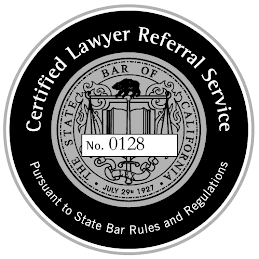California DUI Breath Test Most Common Defenses.Insufficient or broken observation period -no continuous observation for entire 15 minutes before first breath sample (e.g. Officer attempts to include transportation time as part of required observation period, goes to his trunk and/or walks around before removing you from police car, or you were left alone at anytime prior to taking the test -e.g. used restroom or telephone or placed in holding cell/room).
During those 15 minutes before the test, you burp, belch or have slight regurgitation of gas that is relatively quiet.
Vomiting, belching within 15 minutes of test - no rinsing of mouth, or inadequate deprivation period before retest.
You may not be a proper subject for breath testing. You have a physical problem or health limitation: gastric reflux, hiatal hernia or intestinal problem (e.g. Gastro Esophageal Reflux Disease, Irritated Bowel Syndrome, or Acid Reflux Syndrome) diagnosed and treated before date of arrest; dental condition (e.g. gum disease/gingivitis/pockets around roots, dentures or bridgework which may trap mouth alcohol and contaminate a breath machine sample); or respiratory problem (e.g. asthma, bronchitis, emphysema or chronic obstructive pulmonary disease).
Your behavior or actions do not match test results (e.g. shown by independent witnesses).
The breath test room or circuitry has a problem (e.g. Radio Frequency Interference from a cell phone, officer's radio, copy machine or other equipment with surge capabilities) which may cause machine to give artificially high reading; smoking in or near machine; shared power supply with heater or other appliance - must be dedicated "clean" electrical source; or recently painted walls or trim).
You have had recent environmental exposure to volatile fumes (lacquer, gasoline, paint, dry cleaning fluids or even 409) which have cumulative reading, causing chemical interference/falsely elevated result.
Air bag defenses - "the Tyndall effect' - diffusion of light; propellant exposure; cut lips; lung and airway irritation & fluid build-up from caustic gas propellant.
Video tape refutes the high reading, supports sobriety.
High test result, yet you never urinate for 3 to 4 hours or more - physiological impossibility.
Unintentional alcohol (e.g. from Nyquil, Vicks Formula 44, lip balms, toothache drops).
Something in mouth containing alcohol (e.g. Breath Drops with SD alcohol).
Something in mouth that contains interfering or contaminating substance (e.g. Skoal snuff - wintergreen; Altoids curiously strong mints).
Improper or out of agreement tests, without follow-up tests to correct [both results must be within 0.02% of each other].
Officer refuses to permit your request for a second, independent test. Denial of blood test - the more reliable target with the more accurate method of analysis.
Officer not trained or marginally trained in accordance with the standards of Title 17 of the California Code of Regulations (e.g. not trained in theory of operation of machine).
Officer fails to follow manual or training protocol.
Inadequate inspections by machine inspectors (e.g. no linearity proven).
Police report supports sobriety, or lack of investigation of alternative causes.
Rising blood alcohol level showing time of driving BAC would have been lower than time of testing.
Elevated breath temperature (e.g. caused by fever, hot tub, sauna, detention in hot sun or back of patrol car in summer, dancing, menstrual cycle, etc.)
Breath/blood ratio (2100:1) not proven to be your ratio; show how minor error gets multiplied 2100 times; 0.12 = 17/10,000,000th of an ounce. Show you have abnormally low blood/breath conversion ratio through testing and expert.
Inherent sampling variability or margin of error (e.g., 0.088 reading - state acknowledges +/- 0.01% precision problem).
You have blowing pattern irregularity (e.g. blubbering and crying causing artificially high water vapor problem).
You have been on strict high protein diet and then introduce carbohydrates, thereby triggering auto-generated alcohol production when ketones are converted to isopropyl alcohol (or the "auto-brewery" syndrome).
You have diabetes, are borderline diabetic or are hypoglycemic and consume alcohol in any amount, causing conversion of high acetone levels into isopropyl alcohol.
Breath test operator gets first BAC results, which will not support a .08% per se case, then waits a few more minutes and retests, obtaining a reading above the per se limit.
Officer gives chemical test admonition, but then goes too far by threatening dire warnings for which there is no factual basis or misstates consequences regarding possible license suspension.
State fails to prove that results were obtained within the 3 hour statutorily imposed time (3 hours after driving ended) in order to invoke rebuttable presumption that your BAC was at or over the limit at time of driving.
You can prove sufficient alcohol was consumed during driving, after driving ended or before police arrived.
Officer gets fired, indicted, retires, moves away, or dies.
In handling case, officer commits crime (e.g., obstruction of justice or perjury) in an effort to conceal evidence; state cannot proceed, or more often makes an illegal, warrantless stop or arrests you without probable cause.
To find a Pre-screened DUI Attorney, please call our 24Hr Unbiased Lawyer Referral Hotline at 661-310-7999.






